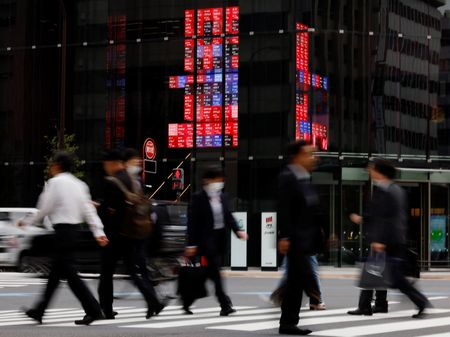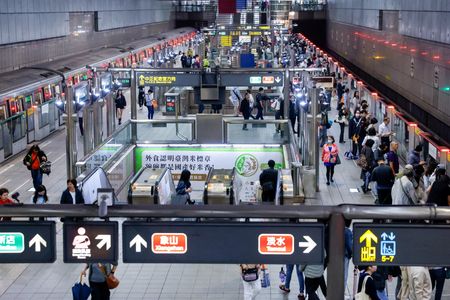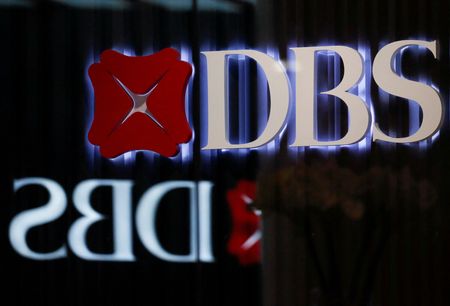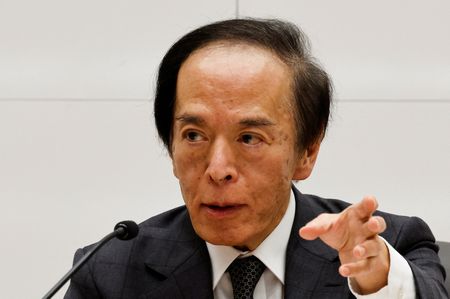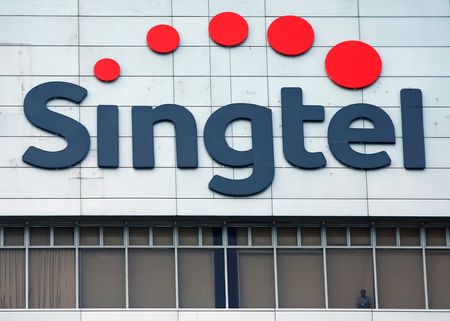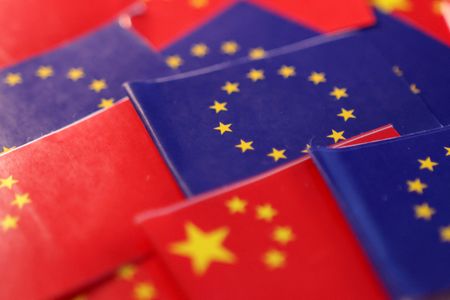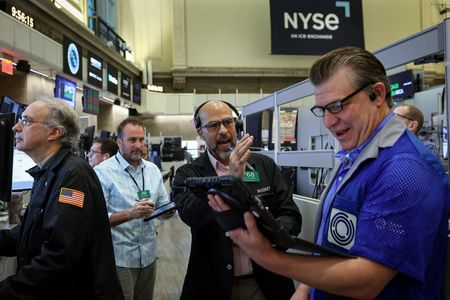By Kiyoshi Takenaka
TOKYO (Reuters) -Far more Japanese companies are optimistic about business conditions under Prime Minister Sanae Takaichi than pessimistic, with the vast majority aiming for next year’s pay hikes to at least match this year’s, a Reuters survey showed on Thursday.
Takaichi, a fiscal dove, took office last month as the nation’s first female premier. She aims to drive economic growth by spurring investment in artificial intelligence, semiconductors, quantum technology and other strategic areas.
About 43% of survey respondents expect business conditions to improve under Takaichi’s watch, while 3% believe the business environment will deteriorate compared with under the previous administration.
“We have high hope for the administration, including its policy to promote industrial growth, though there’s a bit of concern about it being a minority government,” a manager at an information services company wrote in the survey.
Takaichi’s predecessor, Shigeru Ishiba, saw his Liberal Democratic Party lose its combined majority with junior partner Komeito in both chambers of parliament over the past year. Then last month, Komeito left the coalition.
Takaichi soon formed an alliance with the Japan Innovation Party, but the new coalition still fell short of a parliamentary majority.
Asked what factors could have a negative impact on business conditions under the Takaichi administration, 48% picked any instability in the minority government and 42% chose bilateral relations with China.
The question allowed multiple answers.
Before taking office, Takaichi was a regular visitor to the Yasukuni shrine, which honours the country’s wartime leaders convicted as war criminals, as well as its war dead, and is seen by China as a symbol of Japan’s past military aggression.
The premier angered China last week by telling parliament that a hypothetical Chinese attack on Taiwan could trigger a military response from Tokyo.
China, which regards democratically governed Taiwan as a renegade province, lodged a protest against what it called interference in its internal affairs.
The survey was conducted by Nikkei Research for Reuters from October 28 through November 7. Nikkei Research reached out to 495 companies and 222 responded on condition of anonymity.
MOST COMPANIES TO MAINTAIN WAGE HIKE
For the business year starting in April, 72% of respondents plan to raise wages at about the same rate as this year, while 18% expect a smaller pay increase and 10% anticipate a bigger raise, the survey showed.
Companies agreed to raise wages by an average of 5.25% this year, the biggest hike in 34 years, as they grappled with a severe labour shortage.
“Research and development is vital at manufacturers. Continued wage hikes are necessary to attract talented people, especially from the field of science,” an official at a chemical company said.
The Bank of Japan kept its policy interest rate steady last month. Governor Kazuo Ueda said he wanted to wait for “a bit more data” to deem whether companies are likely keep raising wages in the face of pressure from U.S. tariffs.
The survey also showed 12% of respondents have suffered cyberattacks over the past year and 20% had business partners that came under cyberattacks during the same period. As much as 61% had no such experience.
Threats from hackers have drawn renewed attention from corporate Japan after a cyberattack against beverage major Asahi Group in September disrupted areas as varied as beer shipments and accessing its accounting system.
To guard themselves against cyberattacks, 62% of respondents are boosting budgets to fend off hacking attempts, while 31% are setting up dedicated cybersecurity units and 17% are allocating more human resources to better cope with the threats.
Survey questions about cyberattacks also allowed multiple answers.
(Reporting by Kiyoshi Takenaka; Editing by Christopher Cushing)

